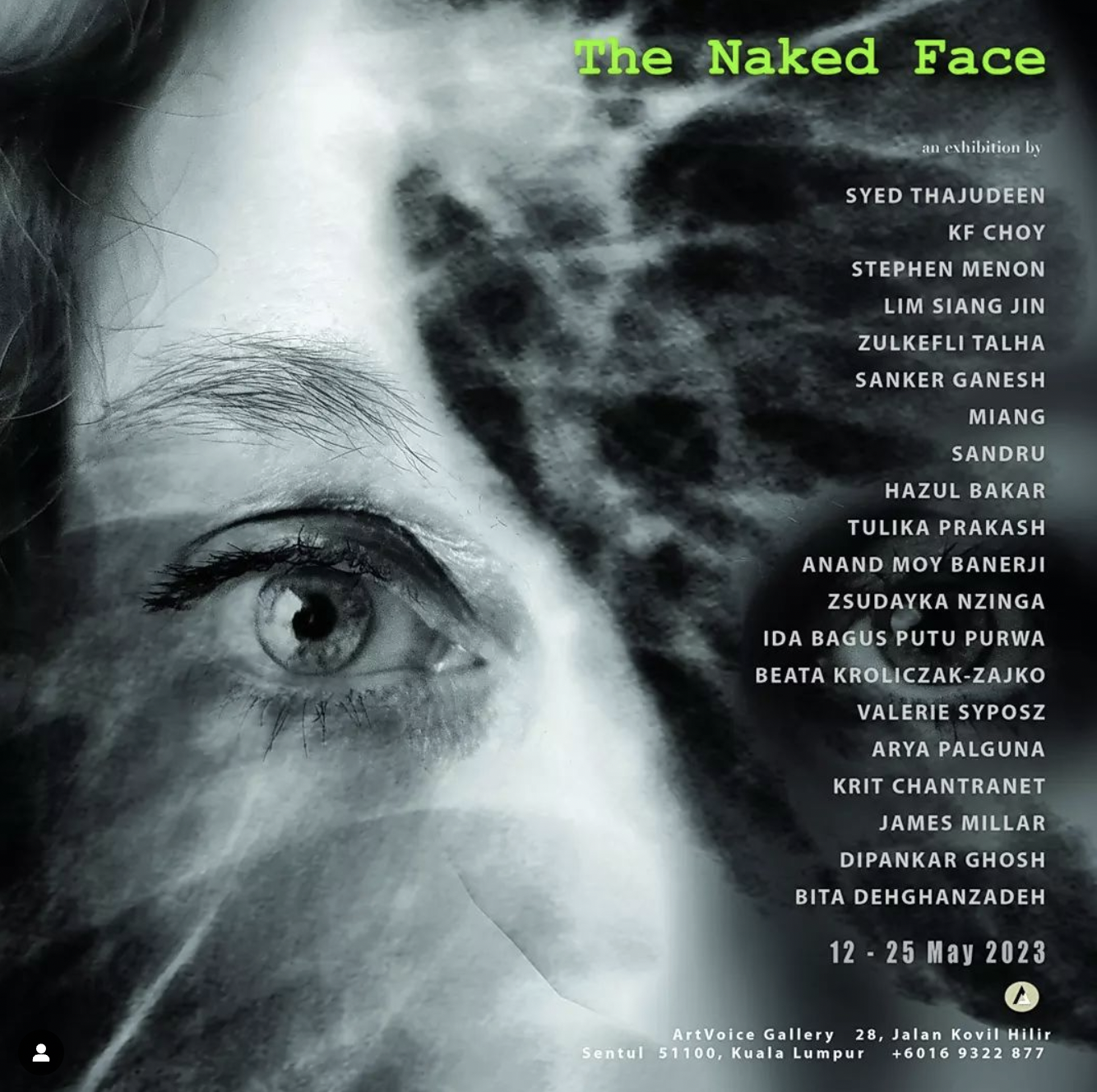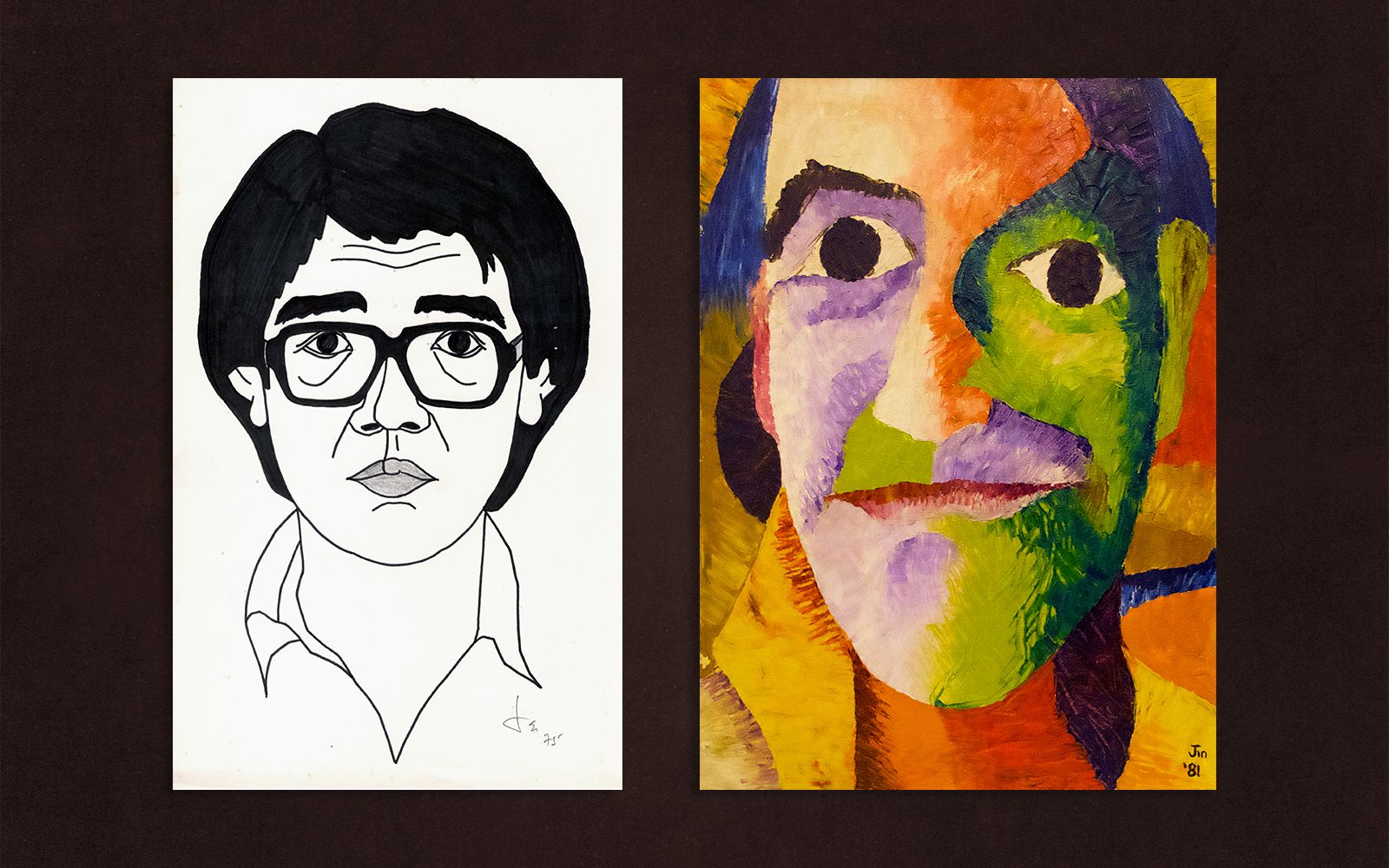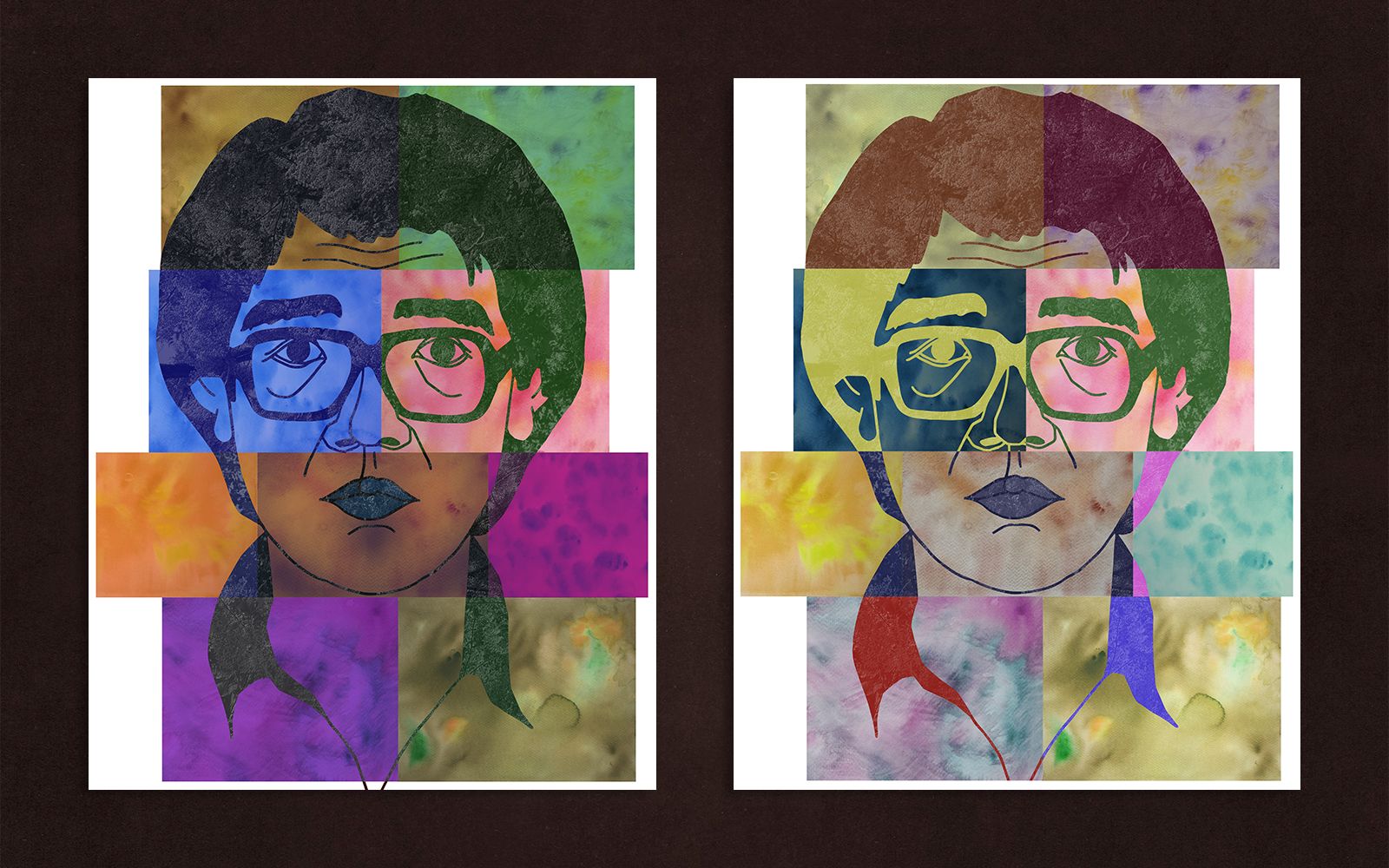Self-portrait in fragments in the midst of 20 ‘naked faces’

WHEN I was approached to do a self-portrait for an exhibition called “The Naked Face” (see details in the caption below), I was a bit alarmed. It has been ages since I did anything about myself. I finally decided to bring out two pieces from the past, one from 1975 and another 1981, to see what I could do with them. They were the only two self-portraits I have done all my life; even then the 1981 piece represented my feelings in colours.

To make them contemporary, I decided to derive the concept for the piece from Zygmunt Bauman’s “Life in Fragments”. The idea for the execution was simple; I would literally scan and print out the works in bits and pieces, and assemble the pieces for a photo shoot. Hence, the title: “Self-Portrait in Fragments”


The society of today is fragmented in the view of sociologists like Zygmunt Bauman. Some refer to our times as “post-modern”, characterised by a sense among individuals of being in bits and pieces, and lacking stability, coherence, and continuity. This is because everything is constantly changing, and old structures and social institutions are being dismantled and replaced with new ones in quick succession. In that sense, I also feel fragmented; being pulled in different directions by an array of social forces.

“Post-modern gaze”? With the subject looking outwards intensely in many “broken”, varied ways, a feature of the piece, it has been suggested that the portrait could represent a “post-modern gaze”.
Zygmunt Bauman on ‘Life in Fragments’
Zygmunt Bauman was a sociologist who developed the concept of "life in fragments." According to Bauman, modern life is characterized by a sense of fragmentation and a lack of stability, coherence, and continuity.
Life in fragments is the experience of living in a world where everything seems to be constantly changing, and where old structures and social institutions are constantly being dismantled and replaced with new ones. In this context, people are forced to adapt to new situations and circumstances constantly.
Bauman argues that this experience of fragmentation can lead to a sense of rootlessness, alienation, and insecurity. People are no longer able to rely on stable social structures, such as family, community, or religion, to provide them with a sense of belonging and security.
Instead, they are forced to constantly construct new social networks and relationships, which are often fragile and short-lived. This can lead to a sense of isolation and disconnection, as people struggle to find meaning and purpose in their lives.
Overall, Bauman's concept of life in fragments is a critique of the modern world, which he sees as increasingly characterized by uncertainty, complexity, and instability. He suggests that this experience of fragmentation has profound implications for how we understand ourselves and our place in the world.
This copy was generated by ChatGPT with the following instructions: “Give a description of Zygmunt Bauman's concept of life in fragments”


With all the work already done, I may put together a few mementoes from my days at the University of Kent (1973-76) and Leeds (1976-77) through to my time at The Malay Mail (1978-82) and the International Organisation of Consumer Unions (IOCU, 1982-84) into some sort of “autobiography in fragments”, after all, for most of us, our memories from 40-50 years back are triggered mainly by the physical things of those times that are still in our possession.


